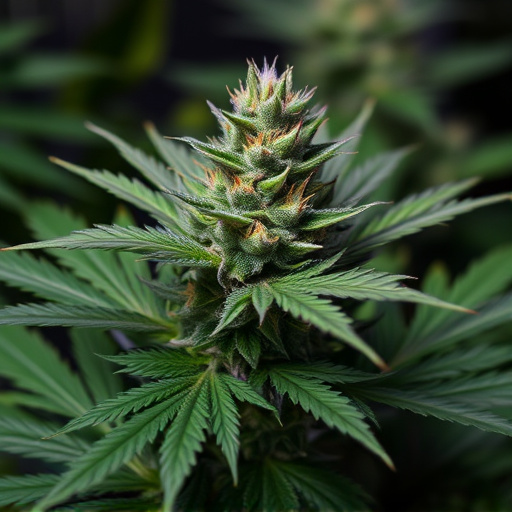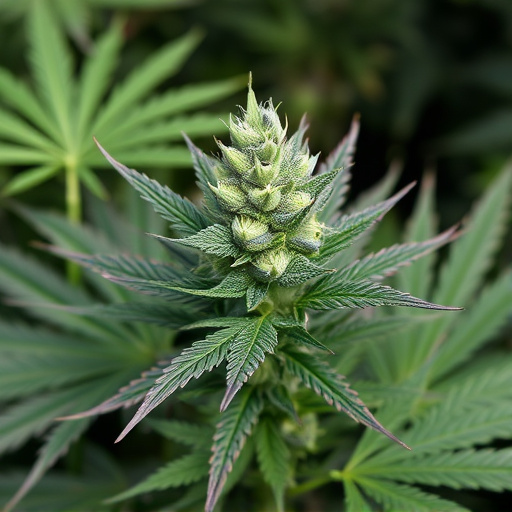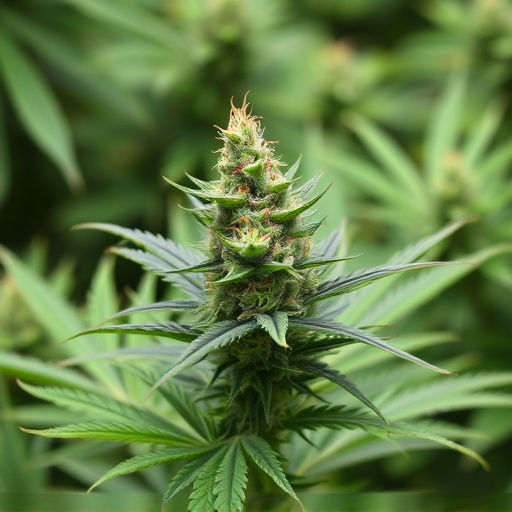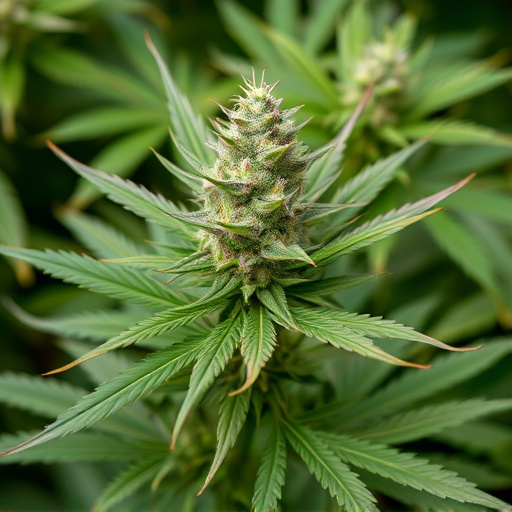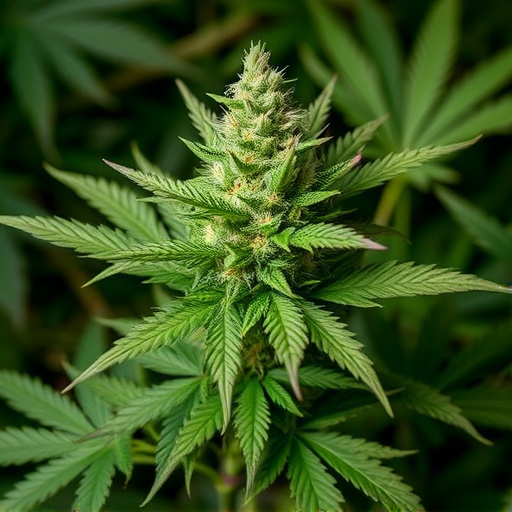Medicinal cannabis strains offer therapeutic benefits due to their unique chemical compositions, primarily Cannabidiol (CBD) and Tetrahydrocannabinol (THC), which interact with the body's endocannabinoid system. High-CBD strains combat inflammation and seizures, while low-THC or balanced profiles manage anxiety and chronic pain without intoxicating effects. These strains, enriched with cannabinoids and terpenes, are effective in managing conditions like chronic pain, epilepsy, multiple sclerosis, and mental health disorders, providing a natural alternative to traditional medications.
Cannabis flower has gained significant attention for its potential medical benefits, with medicinal cannabis strains becoming a hot topic in healthcare. This article delves into the intricate world of these strains, exploring how their unique chemical composition, particularly cannabinoids, offers therapeutic properties for various ailments. Through case studies and ongoing research, we uncover the promising potential of targeting specific conditions with these natural compounds, providing insights into the future of alternative medicine.
- Understanding Medicinal Cannabis Strains: A Foundation for Healing
- The Chemical Composition: Cannabinoids and Their Therapeutic Properties
- Targeting Specific Ailments: Case Studies and Potential
Understanding Medicinal Cannabis Strains: A Foundation for Healing
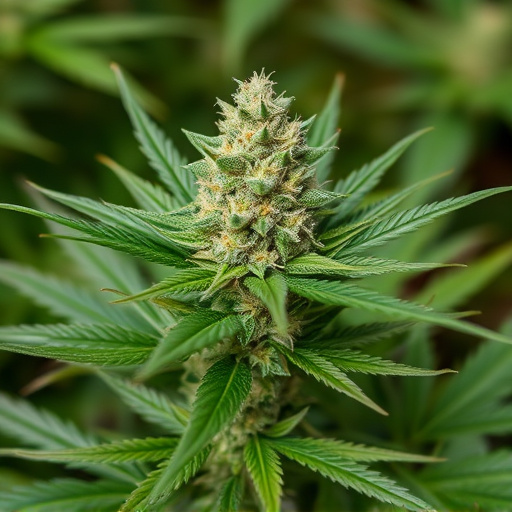
Medicinal cannabis strains are carefully cultivated and selected for their unique chemical profiles, primarily containing Cannabidiol (CBD) and Tetrahydrocannabinol (THC). These compounds interact with the body’s endocannabinoid system, a complex network of receptors that play a significant role in regulating various physiological processes.
Understanding the distinct characteristics of different medicinal cannabis strains is fundamental to harnessing their therapeutic potential. Each strain offers specific medical benefits tailored to diverse conditions. For example, high-CBD strains are often sought for their anti-inflammatory and seizure-reducing properties, while low-THC or balanced THC-CBD profiles may be preferred for managing anxiety and chronic pain without the intoxicating effects associated with higher THC concentrations.
The Chemical Composition: Cannabinoids and Their Therapeutic Properties

The chemical composition of medicinal cannabis strains is a complex network of compounds, but it’s primarily the presence of cannabinoids that makes it a potent medical tool. Cannabinoids are a diverse class of molecules naturally occurring in cannabis plants, with the two most well-known being THC (tetrahydrocannabinol) and CBD (cannabidiol).
THC is responsible for the psychoactive effects associated with cannabis use, but its therapeutic properties extend beyond mere euphoria. It interacts with the endocannabinoid system in our bodies, which plays a crucial role in regulating various functions like mood, memory, appetite, and pain perception. CBD, on the other hand, doesn’t produce a high but is renowned for its anti-inflammatory, anxiolytic (anxiety-reducing), and anticonvulsant properties. The specific ratios of these cannabinoids, along with other minor compounds in medicinal cannabis strains, contribute to their unique therapeutic effects, making them beneficial for conditions ranging from chronic pain and inflammation to anxiety and epilepsy.
Targeting Specific Ailments: Case Studies and Potential
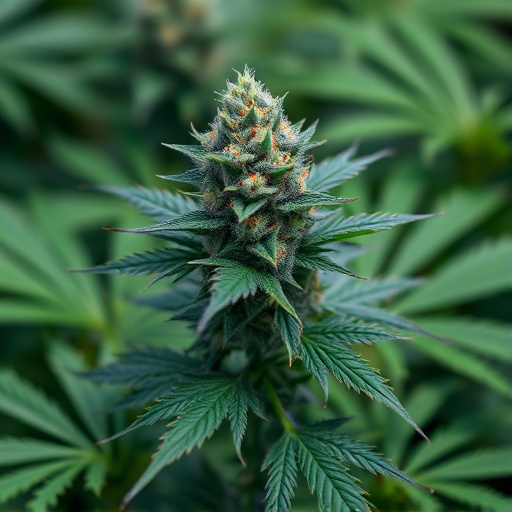
Cannabis flowers offer a wide range of potential medical benefits due to their diverse chemical composition, including cannabinoids and terpenes. One of the key aspects that make medicinal cannabis strains valuable is their ability to target specific ailments. Case studies have shown promising results in using cannabis to manage chronic pain, with patients reporting reduced reliance on opioids. Additionally, certain strains have been linked to positive effects in treating epilepsy, multiple sclerosis, and nausea associated with chemotherapy.
The potential of cannabis extends beyond these conditions. Research is ongoing to explore its efficacy in addressing anxiety, depression, post-traumatic stress disorder (PTSD), and sleep disorders. Terpene profiles, which contribute to the aroma and flavor of different strains, are also being studied for their therapeutic properties. This targeted approach holds great promise for personalized medicine using medicinal cannabis strains tailored to individual needs, offering a natural alternative for various health concerns.
Medicial cannabis strains have shown promising therapeutic potential across a range of ailments, from chronic pain and anxiety to epilepsy and inflammation. By understanding the unique chemical composition of different strains, specifically their cannabinoid profiles, we can harness their power for targeted and effective treatment. Further research and accessibility are key to unlocking the full potential of these natural remedies, offering folks a sustainable and alternative approach to wellness.






